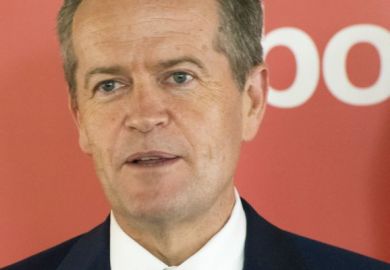Two billionaire Harvard University alumni – Facebook founder Mark Zuckerberg and activist investor Bill Ackman – have fallen short in their bids to get conservative political allies elected to one of the institution’s top governing boards.
A group of four candidates put forth by Mr Ackman and one entrant backed by Mr Zuckerberg all failed to receive enough signatures from their fellow alumni to make the April ballot for election to Harvard’s Board of Overseers, the university’s second most powerful body.
Harvard’s 320,000 alumni with degrees are eligible to run and vote in the process, and the Overseers outcome suggested a possible rank-and-file pushback to the rising political demonisation of Harvard that included last month’s ousting of the university’s first black woman president.
Mr Ackman and the Zuckerberg-backed candidate, Sam Lessin, complained of mechanics in the university’s petitioning process that they believe disadvantaged their efforts, and candidates of their anti-establishment perspective promised to try again next year.
Leading US conservatives outside academia bolstered the outsider campaigns and amplified their protests over the process, including Donald Trump Jr and US Representative Elise Stefanik, the Republican whose attacks fuelled Claudine Gay’s resignation as Harvard president.
Harvard was “inappropriately interfering” with the Overseers election by suppressing the vote and “arbitrarily moving the goalposts” for ballot qualification, Ms Stefanik said in a social media posting, without citing any basis for her complaint.
A Harvard spokesperson said that nothing about the process for collecting signatures to support petition candidates had changed this year. The university picks its own candidates for the Overseers election and allows some outside nominees through the petition process. The last major change to that petition pathway occurred in 2016, when the process was moved online and the requirement for 200 alumni signatures to win nomination was increased to 1 per cent of eligible voters.
The Ivy League university is primarily governed by its 13-seat Harvard Corporation. The Overseers board consists of 30 alumni with important, if rarely used, powers in areas that include ratifying the appointments of senior personnel, including the university president.
The political turmoil this year around the election is unusual but not unprecedented. Past petition candidates have emphasised such issues as the oil industry and apartheid in South Africa.
Yet the actual effect on Harvard is limited, at least under current university rules, which limit Overseers petition candidates to holding only six of the board’s 30 seats. Only two of those six seats are open in the coming election, which is due to occur during April and May.
The Harvard Corporation chooses its own members when it has vacancies, subject to the consent of the Overseers.
The political turmoil consuming much of US higher education was amplified in October by the outbreak of violence in Israel and Gaza, with US conservatives demanding that universities silence campus protesters who were raising concern for the fate of Palestinian civilians. Ms Stefanik’s hectoring of Professor Gay and Elizabeth Magill of the University of Pennsylvania during a congressional hearing, along with Mr Ackman and other tycoons threatening to halt institutional donations, played key roles in both women resigning their presidencies.
Mr Zuckerberg, with a net worth of $170 billion (£130 billion) – the fourth-biggest worldwide – backed the Overseer candidacy of Mr Lessin, a venture capitalist and a former vice-president at Facebook. Mr Ackman, with an estimated at $4 billion in assets, endorsed four alumni – Zoe Bedell, Alec Williams, Julia Pollak and Logan Leslie – as part of a slate calling itself Renew Harvard and promising a series of managerial reforms.
All five entered the competition weeks after the petition process opened in early November. Among them, Mr Lessin received the most nomination votes, at 2,901, but still below the 1 per cent cutoff level of 3,238. He criticised Mr Ackman for putting forth four candidates when no more than two could win, and promised to wage a more strategic campaign for the next Overseers vacancies, expected next year. Part of that, said Ms Bedell, a federal prosecutor, would involve starting the process earlier.
Register to continue
Why register?
- Registration is free and only takes a moment
- Once registered, you can read 3 articles a month
- Sign up for our newsletter
Subscribe
Or subscribe for unlimited access to:
- Unlimited access to news, views, insights & reviews
- Digital editions
- Digital access to THE’s university and college rankings analysis
Already registered or a current subscriber? Login







